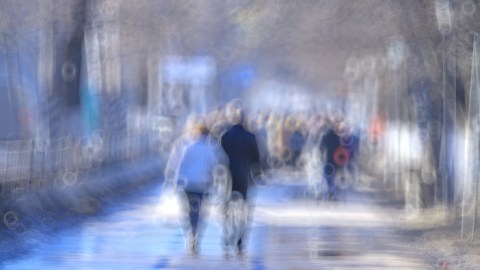Explained: How memories are ‘pruned’ during sleep

Why do we sleep? We know what happens when we don’t get enough. But what is its evolutionary purpose – what kind of changes do our brains undergo when we sleep? A pair of papers published in the journal Science in 2017 have evidence to suggest our brains undergo a pruning cycle while we rest.
Its important to note these studies are still in their early stages. The tests were done on mice.
The results of the study suggest sleep may allow our synapses to undergo a maintenance period. Synapses are the gaps between neurons, across which information is transmitted, and they are a critical part of memory formation. The studies posit that the sleep process trims the fat and adds clarity to our memories, letting us forget the less relevant information while strengthening memories that may be important. When blocking the chemical responsible for trimming the synapses during sleep, the researchers found those mice’s memories became fuzzy.
However, its uncertain whether this is a function of sleep, or if sleep is the function. These tests were done in a lab setting, controlled and optimized. However, modern humans don’t abide by a natural sleep cycle anymore – we look at our phones before bed and expose ourselves to things that cause our brains to think sleep is not on the menu. Some believe this has caused a spike in sleep aids.
The Atlantic reported back in 2014 that the use of sleeping pills has been on the rise:
“The number of prescriptions for nonbenzodiazepine sedative hypnotics, a group of drugs to which zolpidem belongs, grew 30 times over between 1994 and 2007—that’s five times faster than the growth of insomnia diagnoses over the same period of time, and 21 times faster than the growth of patient complaints of sleeplessness. Somewhere between 50 and 70 million Americans are currently thought to suffer from sleep disorders, according to the Centers for Disease Control and Prevention, and around 4 percent of adults use prescription medication to get a good night’s rest.”
Joshua Liao, a physician at Brigham and Women’s Hospital in Boston and a clinical fellow at Harvard Medical School, says much of the issues relating to insomnia can be dealt with by practicing good sleep hygiene. If people avoided napping, eating or drinking caffeine or alcohol, and looking at their phone right before bed, they might not require a chemical crutch to get some rest.
The evidence for sleeping pills giving people restorative sleep relies mostly on self-observation.
“Do you feel more rested, more alert, more able to concentrate, less irritable on medication versus off?” Dr. Daniel J. Buysse told the New York Times. “If all those things are true then I would say it’s more restorative. If a hypnotic drug leaves you feeling hung over or more anxious, if it causes you to order five hickory smoked turkeys on the Internet without remembering, then it’s probably not good.”
But the larger question of what happens to our brains in the longterm is still unknown. The abundance of light and our “natural” bedtime habits have changed considerably in these modern times. What we do know is the practice of good pre-bedtime habits might help you get a good night’s rest and, if the study above proves true for humans, form clearer memories.
The New York Times has more on this study.





